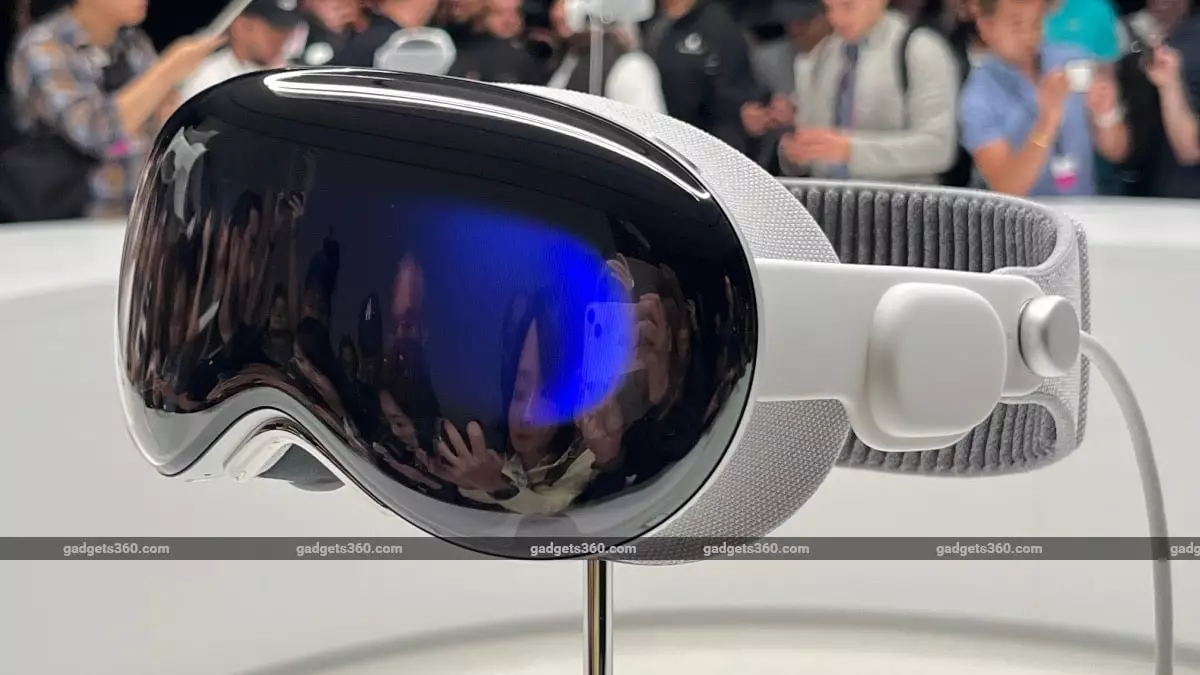Huawei, one of the leading Chinese tech conglomerates, is rumored to be developing a new virtual reality (VR) headset that will compete with Apple’s Vision Pro. According to leaks from Twitter user Mochamad Farido Fanani, the headset is expected to have a high-end design and is scheduled for launch by the end of 2024. However, it is important to approach these claims with skepticism as the credibility of the source is yet to be verified.
While specific details about Huawei’s VR headset remain scarce, Fanani mentions that the device will be powered by a flagship processor. With Apple’s Vision Pro featuring a sophisticated operating system called visionOS, it remains to be seen what Huawei has in store to compete with Apple’s offering. Apple’s Vision Pro allows users to seamlessly interact with the device through eye-tracking, finger-based gestures, and a virtual keyboard.
One interesting detail leaked by Fanani suggests that Huawei’s VR glasses will implement an internal fan-driven heat dissipation system for thermal management, similar to Apple’s approach. This particular feature indicates that Huawei is aiming to deliver a superior VR experience by effectively managing heat generated during prolonged usage. Additionally, the leaks suggest that Huawei’s VR headset will rely on external batteries for power, providing a level of flexibility and mobility for users.
Huawei is not the only player in the race to develop a VR headset. Fanani claims that former Huawei sub-brand, Honor, is also secretly working on its own virtual reality offering. However, no further details regarding Honor’s VR headset have been shared. Additionally, Samsung is reportedly working on its ‘Infinite’ extended reality (XR) headset, which is expected to hit the market in the second half of 2024. The competition is fierce, and it will be interesting to see how Huawei positions itself against these established players.
Looking at the broader market, Chinese smartphone maker Xiaomi has already made its foray into the VR space. Earlier this year, Xiaomi unveiled its Wireless AR Glass Discovery Edition, which features both augmented reality (AR) and VR capabilities. Powered by the Snapdragon XR 2 Gen 1 chip from Qualcomm, Xiaomi’s AR glasses offer “retina-level” displays and support the company’s unique AR gesture controls. This demonstrates that Chinese tech companies are investing heavily in the development of immersive technologies.
Another significant player in the market is Oppo, which added the Oppo Air Glass 2 to its range of “assisted reality” headsets. The Air Glass 2, launched at Oppo Inno Day in 2023, boasts impressive features such as voice-to-text capabilities, real-time translation, phone call functionality, and location-based navigation instructions. Oppo’s focus on practical applications sets it apart from traditional VR headsets and shows how manufacturers are exploring different use cases in this evolving industry.
As the virtual reality market continues to expand, Huawei’s rumored entry into the VR headset segment adds another layer of competition. While details about the device remain limited, the leaks suggest that Huawei aims to deliver a high-end VR experience with features such as heat dissipation systems and external batteries. However, with strong rivals like Apple, Honor, Samsung, Xiaomi, and Oppo already active in this space, Huawei will need to bring something unique to the table to make a lasting impact. It will be fascinating to see how the dynamics of the VR market evolve as these tech giants battle it out for supremacy in the immersive technology sector.


Leave a Reply